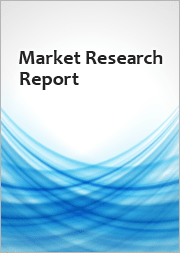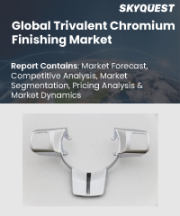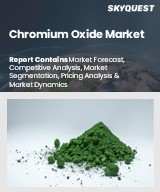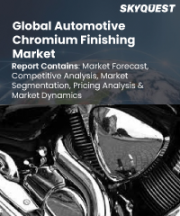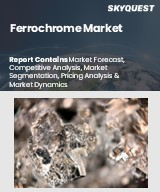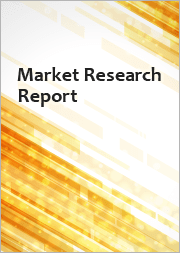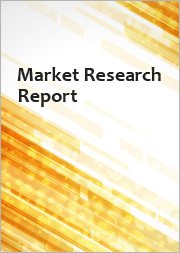
|
시장보고서
상품코드
1617206
인산철 시장 예측 : 유형별, 형태별, 용도별, 지역별 분석(-2030년)Iron Phosphate Market Forecasts to 2030 - Global Analysis By Type (Ferric Phosphate, Ferrous Phosphate, Ferric Pyrophosphate and Other Types), Form (Powder, Granules and Liquid), Application and By Geography |
||||||
Stratistics MRC에 따르면 세계의 인산철 시장은 2024년 6억 149만 달러를 차지했고, 예측 기간 동안 CAGR 7.2%로 성장할 전망이며, 2030년에는 9억 1284만 달러에 이를 것으로 예상됩니다. 인산철은 많은 화학 및 산업 공정, 특히 에너지 저장 산업에서 자주 사용되는 물질입니다. 안정성, 수명, 안전성으로 알려진 인산철 리튬(LiFePO4) 배터리는 인산철을 주성분으로 만들어져 있습니다. 신재생 에너지 저장 시스템, 전기자동차(EV) 및 고성능과 신뢰성이 요구되는 기타 용도 분야에서는 이 배터리가 자주 사용됩니다.
유럽식품안전기구(EFSA)에 따르면 인산철은 가축의 성장과 건강 전반에 필수적인 철 결핍을 방지하기 위해 가축 사료에 사용되고 있습니다. EFSA의 보고에 따르면 인산철의 보급은 가축의 성장률을 15-20% 향상시킵니다.
인산철 리튬(LFP) 전지 수요 증가
인산철, 특히 인산철 리튬(LFP) 배터리 수요 증가의 주요 원인 중 하나는 전기자동차(EV)의 보급입니다. LFP 배터리는 다른 배터리에 비해 안전성이 뛰어나 수명이 길고 가격도 저렴하기 때문에 EV에 권장되고 있습니다. LFP 배터리는 이산화탄소 배출량을 줄이고 보다 친환경적인 에너지원으로 전환하는 세계의 움직임에서 에너지 전환의 필수적인 부분으로 여겨지고 있습니다. 또한 안정성이 높고 열 관리가 뛰어나 화재 위험이 낮기 때문에 전기자동차 사용에 이상적입니다.
비싼 제조 및 희귀 원료
인산철, 특히 배터리 용도의 인산철 리튬(LFP) 제조에 필요한 원재료로는 리튬, 인산염, 철 등이 있습니다. 세계 공급망의 제약으로 인해 이러한 원자재가 부족해지거나 가격 변동의 영향을 받을 수 있습니다. 전기차(EV)의 대두는 LFP 전지의 수요를 증대시키고 있는데, 이는 원재료를 압박하고 제조 비용을 상승시킴으로써 시장의 성장을 제한할 가능성이 있습니다. 또한 필요한 원재료의 입수 가능성과 비용은 세계 광업이 직면하는 환경 문제나 규제 문제에 의해 영향을 받을 수 있습니다.
농업에서 지속 가능한 비료의 필요성 증가
지속 가능한 농법이 보급됨에 따라 인산철은 농업계에서 확대될 가능성이 큽니다. 비옥도를 높일 수 있기 때문에 귀중한 존재가 되고 있습니다. 환경 악화나 식량 안보에 관한 세계의 우려에 대응해 농법이 변화하는 가운데, 이러한 친환경 비료는 특히 중요합니다. 게다가 세계 인구가 증가하고 농작물 수확량 증가에 대한 수요가 높아지는 가운데 인산철은 농업의 지속가능성을 크게 도울 수 있습니다. 인산철은 해충 구제에도 사용되기 때문에 친환경 농법으로서의 매력도 증가합니다.
다른 기술 및 재료와의 경쟁
특히 전기자동차(EV)와 에너지저장 업계에서는 대체 배터리 화학물질과의 경쟁이 심해 인산철은 큰 과제에 직면하고 있습니다. 인산철리튬(LFP) 전지는 저렴한 가격과 안전성에서 높은 평가를 받고 있음에도 불구하고 산화망간리튬(LMO)이나 니켈 코발트 알루미늄 리튬(NCA) 같은 다른 전지화학에 비해 에너지 밀도가 낮습니다. 또한, LFP 배터리는 더 높은 에너지 밀도와 더 빠른 충전 시간을 제공하는 고체 배터리의 출현으로 위협받을 수 있습니다. 게다가 대체 재료가 보다 효과적이라는 것이 증명되면, 이러한 개발에 의해 배터리 제조에서 인산철의 필요성이 저하될 가능성도 있습니다.
COVID-19의 영향 :
COVID-19의 대유행은 인산철 시장에 큰 영향을 미쳤지만, 그 주요 원인은 제조의 정지, 원료 생산의 지연, 세계 공급망의 혼란이었습니다. 철, 인산염, 리튬과 같은 중요 자원의 채굴과 추출은 조업 정지와 도항 제한의 영향을 받아 생산 비용의 상승과 공급 부족을 초래했습니다. 게다가, 인산철 리튬(LFP) 배터리의 중요한 유저인 자동차 부문에서는, 공장의 폐쇄나 자동차에 대한 소비자 수요의 저하로, 생산이 둔화했습니다.
인산철 부문은 예측 기간 동안 최대가 될 전망
인산철은 식품, 농업, 배터리 등 다양한 산업에서 널리 사용되고 있기 때문에 인산철 부문은 인산철 시장에서 가장 큰 점유율을 차지할 것으로 예측됩니다. 인산 제2철은 농업에서 일반적인 친환경 농약이며, 특히 민달팽이나 달팽이 구제에 사용되는 경우 합성 화학물질보다 안전합니다. 게다가 EV나 신재생 에너지 저장용의 인산철 리튬(LFP) 배터리의 제조 등, 에너지 저장 솔루션에 대한 관여도, 시장에서의 우위성을 크게 뒷받침하고 있습니다.
예측 기간 동안 CAGR이 가장 높을 것으로 예상되는 분말 분야
예측 기간을 통해 분말 분야의 CAGR이 가장 높아질 것으로 예상됩니다. 이 확대에는 특히 화학, 농업, 배터리 제조 등의 분야에서 인산철을 기반으로 한 상품 수요 증가가 기여하고 있습니다. 분말 인산철을 사용하는 인산철 리튬(LFP) 배터리는 비용 대비 효과, 안전성, 환경면에서 우수하기 때문에 전기자동차(EV) 시장에서 널리 사용되고 있습니다. 또한 인산철 분말은 기존 화학비료나 해충 구제의 대체품으로 보다 친환경적이고 효율적인 농업 분야에서도 널리 사용되고 있습니다. 게다가 시장의 급성장은 분말의 형태가 산업 용도에 있어 효율성을 높이고, 사용하기 쉽고, 범용성이 있는 것에 기인하고 있습니다.
최대 점유율을 차지하는 지역 :
인산철 시장은 견고한 제조거점과 신재생 에너지 저장 시스템, 전기자동차(EV), 농업 용도 수요 증가로 아시아태평양이 지배적이라고 예측됩니다. 중국, 일본, 한국은 인산철 리튬(LFP) 전지의 주요 생산국으로 저렴한 가격과 안전성으로 EV에 널리 이용되고 있습니다. 인산철은 또한 특히 중국과 인도에서 급속히 성장하는 농업 분야 때문에 비료나 농약에도 많이 사용되고 있습니다. 또한 이 지역은 녹색 기술과 청정 에너지를 지원하는 정부 프로그램으로부터도 이익을 얻고 있어 인산철 시장 확대에 공헌하고 있습니다.
CAGR이 가장 높은 지역 :
인산철 시장의 CAGR이 가장 높을 것으로 예상되는 것은 중동 및 아프리카입니다. 신재생 에너지 사업에 대한 투자 확대, 전기 자동차(EV)의 이용 확대, 중요국에서 농업 분야의 확대가 이 성장의 주된 원동력이 되고 있습니다. 중동은 석유 의존에서 벗어나기 위한 노력의 일환으로 지속 가능한 기술과 청정 에너지에 대한 대규모 투자를 실시하고 있으며, 인산철을 기반으로 하는 배터리, 특히 인산철 리튬(LFP) 배터리의 수요를 높이고 있습니다. 또한 인산철은 농업 생산성과 식량 안보 향상을 목표로 하는 아프리카 국가에서 비료와 농약에 사용되는 경우도 많아지고 있습니다.
무료 주문을 받아서 만드는 서비스 :
이 보고서를 구독하는 고객은 다음 무료 맞춤설정 옵션 중 하나를 사용할 수 있습니다.
- 기업 프로파일
- 추가 시장 기업의 종합적 프로파일링(3개사까지)
- 주요 기업의 SWOT 분석(3개사까지)
- 지역 세분화
- 고객의 관심에 응한 주요국 시장 추계, 예측 및 CAGR(주 : 타당성 확인에 따름)
- 경쟁 벤치마킹
- 제품 포트폴리오, 지리적 존재, 전략적 제휴에 기반한 주요 기업 벤치마킹
목차
제1장 주요 요약
제2장 서문
- 개요
- 이해관계자
- 조사 범위
- 조사 방법
- 데이터 마이닝
- 데이터 분석
- 데이터 검증
- 조사 접근
- 조사 정보원
- 1차 조사 정보원
- 2차 조사 정보원
- 전제조건
제3장 시장 동향 분석
- 드라이버
- 억제요인
- 기회
- 위협
- 용도 분석
- 신흥 시장
- COVID-19의 영향
제4장 Porter's Five Forces 분석
- 공급기업의 협상력
- 구매자의 협상력
- 대체품의 위협
- 신규 진입업자의 위협
- 경쟁 기업간 경쟁 관계
제5장 세계의 인산철 시장 : 유형별
- 인산철
- 인산 제일철
- 피로인산 제2철
- 기타 유형
제6장 세계의 인산철 시장 : 형태별
- 분말
- 과립
- 액체
제7장 세계의 인산철 시장 : 용도별
- 의약품
- 음식
- 동물사료
- 비료
- 도료 및 코팅
- 농업
- 철강 제조
- 기타 용도
제8장 세계의 인산철 시장 : 지역별
- 북미
- 미국
- 캐나다
- 멕시코
- 유럽
- 독일
- 영국
- 이탈리아
- 프랑스
- 스페인
- 기타 유럽
- 아시아태평양
- 일본
- 중국
- 인도
- 호주
- 뉴질랜드
- 한국
- 기타 아시아태평양
- 남미
- 아르헨티나
- 브라질
- 칠레
- 기타 남미
- 중동 및 아프리카
- 사우디아라비아
- 아랍에미리트(UAE)
- 카타르
- 남아프리카
- 기타 중동 및 아프리카
제9장 주요 발전
- 계약, 파트너십, 협업 및 합작투자(JV)
- 인수 및 합병
- 신제품 발매
- 사업 확대
- 기타 주요 전략
제10장 기업 프로파일링
- Thermo Fisher Scientific Inc.
- Merck KGaA
- Aarvee Chemicals
- Charkit Chemical Company LLC
- Innophos Holdings Inc.
- BASF SE
- Jost Chemical Co.
- Mosaic Company
- Alfa Aesar
- Bayer AG
- Pioneer Enterprise
- Imperial Chemorporation
- Crest Industrial Chemicals
- Zhengzhou Ruipu Biological Engineering Co. Ltd
- Spectrum Chemical Manufacturing Corporation
According to Stratistics MRC, the Global Iron Phosphate Market is accounted for $601.49 million in 2024 and is expected to reach $912.84 million by 2030 growing at a CAGR of 7.2% during the forecast period. Iron phosphate is a substance that is frequently utilized in many chemical and industrial processes, particularly in the energy storage industry. Known for its stability, longevity, and safety features, lithium iron phosphate (LiFePO4) batteries are made with it as a key component. Renewable energy storage systems, electric vehicles (EVs), and other applications requiring high performance and dependability frequently use these batteries.
According to the European Food Safety Authority (EFSA), iron phosphate is used in animal feed to prevent iron deficiency in livestock, which is essential for their growth and overall health. The EFSA reports that iron phosphate supplementation can improve livestock growth rates by 15-20%.
Market Dynamics:
Driver:
Rising demand for batteries made of lithium iron phosphate (LFP)
One of the main causes of the rising demand for iron phosphate, particularly in the form of lithium iron phosphate (LFP) batteries, is the rise in the use of electric vehicles (EVs). Because of their superior safety profile, extended lifespan, and affordability when compared to alternative battery chemistries, these batteries are recommended for EVs. LFP batteries are viewed as an essential part of the energy transition, given the global drive to lower carbon emissions and switch to more environmentally friendly energy sources. Furthermore, they are perfect for use in electric vehicles due to their increased stability, better thermal management, and lower risk of fire hazards.
Restraint:
Expensive manufacturing and scarce raw materials
Lithium, phosphate, and iron are among the particular raw materials needed to produce iron phosphate, particularly as lithium iron phosphate (LFP) for battery applications. Due to global supply chain constraints, these materials may occasionally be scarce or subject to price fluctuations. The rise in electric vehicles (EVs) has increased demand for LFP batteries, which could limit market growth by placing pressure on raw materials and raising production costs. Moreover, the availability and cost of necessary materials may be impacted by environmental and regulatory issues that the global mining industry faces.
Opportunity:
Growing need for sustainable fertilizers in agriculture
Iron phosphate has a great chance to expand in the agricultural industry as sustainable farming methods gain popularity. The ability of fertilizers based on iron phosphate to increase soil fertility without having the harmful side effects of conventional fertilizers makes them valuable. As agricultural practices change in response to global concerns about environmental degradation and food security, these environmentally friendly fertilizers are especially crucial. Additionally, agricultural sustainability can be greatly aided by iron phosphate as the world's population rises and the demand for greater crop yields rises. Iron phosphate's use in pest control also increases its allure in environmentally friendly farming methods.
Threat:
Competition from other technologies and materials
Due to fierce competition from alternative battery chemistries, especially in the electric vehicle (EV) and energy storage industries, iron phosphate is facing significant challenges. Despite their reputation for affordability and safety, lithium iron phosphate (LFP) batteries have a lower energy density than other battery chemistries like lithium manganese oxide (LMO) and lithium nickel cobalt aluminum (NCA). LFP batteries may also be threatened by the emergence of solid-state batteries, which provide greater energy densities and quicker charging times. Furthermore, if alternative materials prove to be more effective, these developments may lessen the need for iron phosphate in the manufacturing of batteries.
Covid-19 Impact:
The COVID-19 pandemic had a major effect on the iron phosphate market, mostly due to manufacturing halts, delays in raw material production, and disruptions in global supply chains. The mining and extraction of vital resources like iron, phosphate, and lithium were impacted by the lockdowns and travel restrictions, which raised production costs and caused supply shortages. Furthermore, factory closures and a decline in consumer demand for automobiles caused production to slow down in the automotive sector, which is a significant user of lithium iron phosphate (LFP) batteries.
The Ferric Phosphate segment is expected to be the largest during the forecast period
Due to its widespread application in a variety of industries, such as food, agriculture, and batteries, the ferric phosphate segment is projected to hold the largest share in the iron phosphate market. Ferric phosphate is a common environmentally friendly pesticide in agriculture that is safer than synthetic chemicals, especially when used to control slugs and snails. Moreover, its dominance in the market has also been greatly aided by its involvement in energy storage solutions, such as the manufacturing of lithium iron phosphate (LFP) batteries for EVs and renewable energy storage.
The Powder segment is expected to have the highest CAGR during the forecast period
Throughout the projection period, the Powder segment is expected to have the highest CAGR. This expansion is fueled by the rising demand for goods based on iron phosphate, particularly in sectors like chemicals, agriculture, and battery manufacturing. The cost-effectiveness, safety, and environmental benefits of lithium iron phosphate (LFP) batteries, which use powdered iron phosphate, have led to their widespread use in the electric vehicle (EV) market. Iron phosphate powder is also widely used in agriculture as a more environmentally friendly and efficient substitute for conventional chemicals in fertilizers and pest control. Additionally, rapid market growth has been attributed to the powder form's increased efficiency, ease of use, and versatility in industrial applications.
Region with largest share:
The market for iron phosphate is projected to be dominated by the Asia-Pacific region due to its robust manufacturing base and rising demand for renewable energy storage systems, electric vehicles (EVs), and agricultural applications. China, Japan, and South Korea are major producers of lithium iron phosphate (LFP) batteries, which are extensively utilized in EVs because of their affordability and safety benefits. Iron phosphate is also being used more often in fertilizers and pesticides due to the regions quickly growing agricultural sector, especially in China and India. Furthermore, the region also gains from government programs that support green technologies and clean energy, which helps the iron phosphate market expand.
Region with highest CAGR:
The iron phosphate market's highest CAGR is anticipated in the Middle East and Africa region. Growing investments in renewable energy projects, the increasing use of electric vehicles (EVs), and the expanding agricultural sector in important nations are the main drivers of this growth. The Middle East is making significant investments in sustainable technologies and clean energy as part of its efforts to diversify away from its reliance on oil, which increases demand for batteries based on iron phosphate, especially lithium iron phosphate (LFP) batteries. Moreover, iron phosphate is also becoming more and more popular in Africa for use in fertilizers and pesticides as nations look to increase agricultural productivity and food security.
Key players in the market
Some of the key players in Iron Phosphate market include Thermo Fisher Scientific Inc., Merck KGaA, Aarvee Chemicals, Charkit Chemical Company LLC, Innophos Holdings Inc., BASF SE, Jost Chemical Co., Mosaic Company, Alfa Aesar, Bayer AG, Pioneer Enterprise, Imperial Chemorporation, Crest Industrial Chemicals, Zhengzhou Ruipu Biological Engineering Co. Ltd and Spectrum Chemical Manufacturing Corporation.
Key Developments:
In May 2024, Merck has signed a definitive agreement to acquire life science company Mirus Bio for US$ 600 million. Based in Madison, Wisconsin, USA, Mirus Bio is a specialist in the development and commercialization of transfection reagents. Transfection reagents, such as Mirus Bio's TransIT-VirusGEN(R), are used to help introduce genetic material into cells.
In April 2024, Bayer AG has signed a long-term supply agreement for electricity from renewable energy sources with Wuppertaler Stadtwerke (WSW), the public utility company of Wuppertal in North Rhein-Westphalia, Germany. The contract underlines Bayer's global commitment to sustainability.
In February 2023, Thermo Fisher Scientific Inc. entered into a definitive agreement to acquire CorEvitas, a provider of regulatory-grade, real-world evidence for approved medical treatments and therapies, from Audax Private Equity, for $912.5 million in cash. CorEvitas will become part of Thermo Fisher's Laboratory Products and Biopharma Services segment.
Types Covered:
- Ferric Phosphate
- Ferrous Phosphate
- Ferric Pyrophosphate
- Other Types
Forms Covered:
- Powder
- Granules
- Liquid
Applications Covered:
- Pharmaceuticals
- Food & Beverage
- Animal Feed
- Fertilizers
- Paints and Coatings
- Agriculture
- Steel Manufacturing
- Other Applications
Regions Covered:
- North America
- US
- Canada
- Mexico
- Europe
- Germany
- UK
- Italy
- France
- Spain
- Rest of Europe
- Asia Pacific
- Japan
- China
- India
- Australia
- New Zealand
- South Korea
- Rest of Asia Pacific
- South America
- Argentina
- Brazil
- Chile
- Rest of South America
- Middle East & Africa
- Saudi Arabia
- UAE
- Qatar
- South Africa
- Rest of Middle East & Africa
What our report offers:
- Market share assessments for the regional and country-level segments
- Strategic recommendations for the new entrants
- Covers Market data for the years 2022, 2023, 2024, 2026, and 2030
- Market Trends (Drivers, Constraints, Opportunities, Threats, Challenges, Investment Opportunities, and recommendations)
- Strategic recommendations in key business segments based on the market estimations
- Competitive landscaping mapping the key common trends
- Company profiling with detailed strategies, financials, and recent developments
- Supply chain trends mapping the latest technological advancements
Free Customization Offerings:
All the customers of this report will be entitled to receive one of the following free customization options:
- Company Profiling
- Comprehensive profiling of additional market players (up to 3)
- SWOT Analysis of key players (up to 3)
- Regional Segmentation
- Market estimations, Forecasts and CAGR of any prominent country as per the client's interest (Note: Depends on feasibility check)
- Competitive Benchmarking
- Benchmarking of key players based on product portfolio, geographical presence, and strategic alliances
Table of Contents
1 Executive Summary
2 Preface
- 2.1 Abstract
- 2.2 Stake Holders
- 2.3 Research Scope
- 2.4 Research Methodology
- 2.4.1 Data Mining
- 2.4.2 Data Analysis
- 2.4.3 Data Validation
- 2.4.4 Research Approach
- 2.5 Research Sources
- 2.5.1 Primary Research Sources
- 2.5.2 Secondary Research Sources
- 2.5.3 Assumptions
3 Market Trend Analysis
- 3.1 Introduction
- 3.2 Drivers
- 3.3 Restraints
- 3.4 Opportunities
- 3.5 Threats
- 3.6 Application Analysis
- 3.7 Emerging Markets
- 3.8 Impact of Covid-19
4 Porters Five Force Analysis
- 4.1 Bargaining power of suppliers
- 4.2 Bargaining power of buyers
- 4.3 Threat of substitutes
- 4.4 Threat of new entrants
- 4.5 Competitive rivalry
5 Global Iron Phosphate Market, By Type
- 5.1 Introduction
- 5.2 Ferric Phosphate
- 5.3 Ferrous Phosphate
- 5.4 Ferric Pyrophosphate
- 5.5 Other Types
6 Global Iron Phosphate Market, By Form
- 6.1 Introduction
- 6.2 Powder
- 6.3 Granules
- 6.4 Liquid
7 Global Iron Phosphate Market, By Application
- 7.1 Introduction
- 7.2 Pharmaceuticals
- 7.3 Food & Beverage
- 7.4 Animal Feed
- 7.5 Fertilizers
- 7.6 Paints and Coatings
- 7.7 Agriculture
- 7.8 Steel Manufacturing
- 7.9 Other Applications
8 Global Iron Phosphate Market, By Geography
- 8.1 Introduction
- 8.2 North America
- 8.2.1 US
- 8.2.2 Canada
- 8.2.3 Mexico
- 8.3 Europe
- 8.3.1 Germany
- 8.3.2 UK
- 8.3.3 Italy
- 8.3.4 France
- 8.3.5 Spain
- 8.3.6 Rest of Europe
- 8.4 Asia Pacific
- 8.4.1 Japan
- 8.4.2 China
- 8.4.3 India
- 8.4.4 Australia
- 8.4.5 New Zealand
- 8.4.6 South Korea
- 8.4.7 Rest of Asia Pacific
- 8.5 South America
- 8.5.1 Argentina
- 8.5.2 Brazil
- 8.5.3 Chile
- 8.5.4 Rest of South America
- 8.6 Middle East & Africa
- 8.6.1 Saudi Arabia
- 8.6.2 UAE
- 8.6.3 Qatar
- 8.6.4 South Africa
- 8.6.5 Rest of Middle East & Africa
9 Key Developments
- 9.1 Agreements, Partnerships, Collaborations and Joint Ventures
- 9.2 Acquisitions & Mergers
- 9.3 New Product Launch
- 9.4 Expansions
- 9.5 Other Key Strategies
10 Company Profiling
- 10.1 Thermo Fisher Scientific Inc.
- 10.2 Merck KGaA
- 10.3 Aarvee Chemicals
- 10.4 Charkit Chemical Company LLC
- 10.5 Innophos Holdings Inc.
- 10.6 BASF SE
- 10.7 Jost Chemical Co.
- 10.8 Mosaic Company
- 10.9 Alfa Aesar
- 10.10 Bayer AG
- 10.11 Pioneer Enterprise
- 10.12 Imperial Chemorporation
- 10.13 Crest Industrial Chemicals
- 10.14 Zhengzhou Ruipu Biological Engineering Co. Ltd
- 10.15 Spectrum Chemical Manufacturing Corporation






